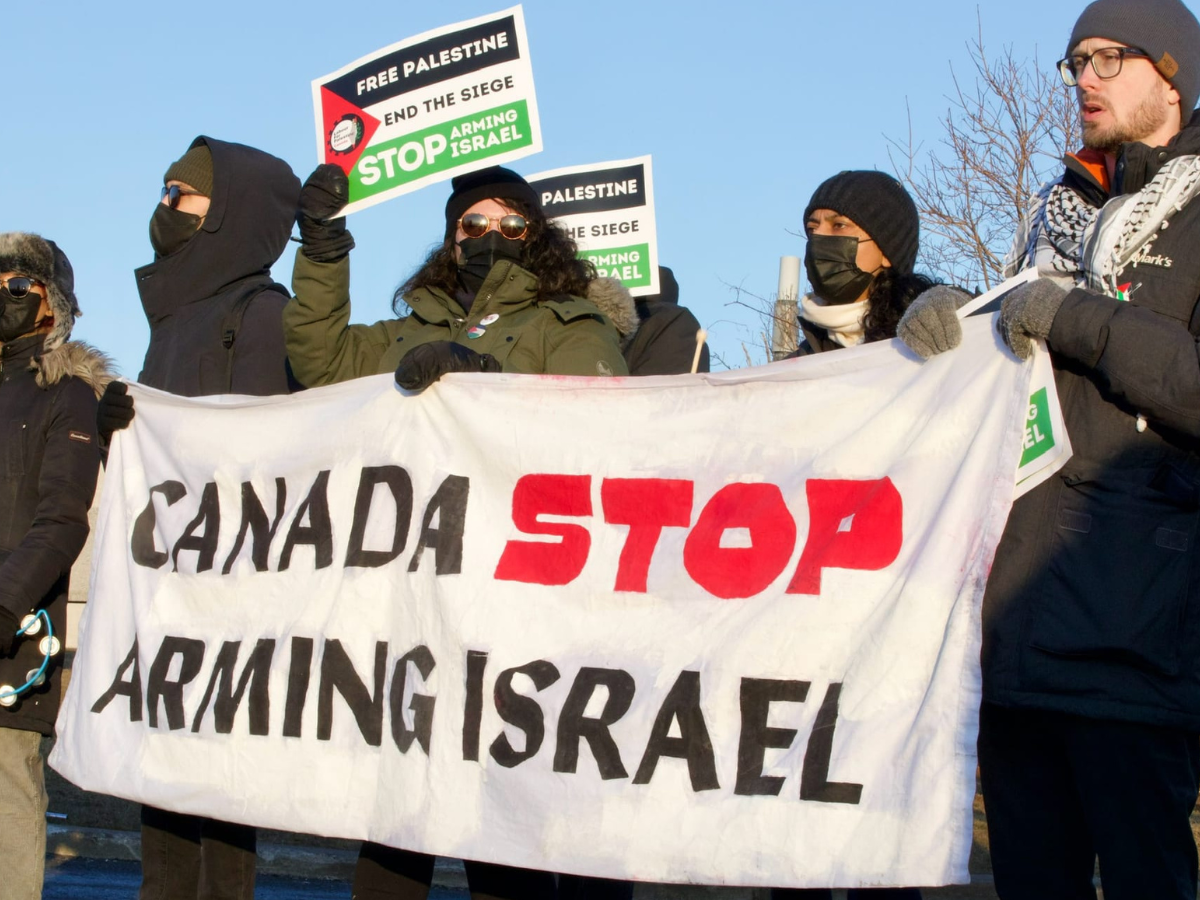
Montreal, August 21 (RHC)-- Canada has refused to comment on a planned U.S. sale of Canadian-made weapons to Israel, after news of the deal drew rebuke from rights advocates who argue the arms will help fuel Israeli human rights abuses against Palestinians.
In a brief statement to Al Jazeera, a spokesman for Canada’s foreign affairs department, Global Affairs Canada, said it “will not speculate on a possible Foreign Military Sale by the United States.”
“Since January 8th, the Government of Canada has not approved new arms export permits to Israel, and this remains the federal government’s approach,” it said.
Canada announced earlier this year that it would not authorize new export permits for weapons to Israel amid mass protests over the country’s war in the Gaza Strip, which has killed more than 40,000 Palestinians over nearly 11 months.
But rights advocates quickly noted that Canada has not revoked existing arms export permits, nor would the prohibition affect Canadian weapons and components that first go to the US before they are shipped to Israel.
Those transfers to the U.S. are difficult to track because of a decades-old preferential trade relationship that allows the North American neighbors to more easily exchange military weapons and related components.
Last Tuesday, the U.S. Defense Security Cooperation Agency (DSCA) announced that a company based in the Canadian province of Quebec would be the main contractor in a possible deal to send $61.1 million in munitions to Israel.
The company, called General Dynamics Ordnance and Tactical Systems Inc, is set to supply tens of thousands of “M933A1 120 mm High Explosive Mortar Cartridges and related equipment,” the agency said in a statement. Deliveries are expected to begin in 2026.
Michael Bueckert, vice president of Canadians for Justice and Peace in the Middle East (CJPME), an advocacy group, told Al Jazeera that the Canadian government “has a responsibility” to stop the shipment. “If Canada is going to knowingly allow weapons to be transferred to Israel while it claims to be stopping this sort of thing, it just destroys their entire credibility,” he said.
Bueckert added that, with experts accusing Israel of committing “genocide” in Gaza, it also “shows that they’re more interested in public relations than taking action to prevent complicity in genocide.”
The National Council of Canadian Muslims (NCCM), another advocacy group, also urged Canada to prevent the transfer. “Any decision otherwise would render the Government’s earlier weapon permits ban to become moot,” its CEO, Stephen Brown, said in a statement on Tuesday.
On Monday, the left-leaning New Democratic Party (NDP) issued a statement publicly opposing the sale, saying it was “horrified” to learn of Canada’s involvement. “Canada must not be fuelling the ongoing genocide in Gaza with Canadian-made weapons,” said Heather McPherson, a Canadian parliament member and foreign affairs critic for the NDP.
“By refusing to end arms sales to Israel, including by allowing loopholes to send weapons through the United States, Canada could potentially be complicit in war crimes.”
General Dynamics Ordnance and Tactical Systems Inc, the Canada-based company involved in the sale, did not immediately respond to Al Jazeera’s request for comment.
Legal experts have said Canada is flouting its obligations under international law to prohibit weapons transfers to countries when there is a serious risk the equipment could be used in human rights violations.
For instance, the Arms Trade Treaty (ATT) — a United Nations pact to which Canada is a signatory — bans transfers if states have knowledge the arms could be used in genocide, crimes against humanity, war crimes and other violations of international law.
The UN’s top court, the International Court of Justice (ICJ), has already said there is a “plausible” risk that Israel is committing genocide against Palestinians in Gaza.
Rights groups have also documented scores of Israeli military attacks against Palestinian civilians, journalists and humanitarian aid workers across the enclave since the war began. Against that backdrop, in March, a group of Palestinian Canadians and human rights lawyers sued Canada over exports of military equipment to Israel.
“We are seeking to hold Canada to its own standards and to its international legal obligations,” Henry Off, a board member for Canadian Lawyers for International Human Rights (CLAIHR), one of the groups involved in the case, told Al Jazeera at the time.
“We don’t want the Canadian government to be contributing to the mass starvation and bombardment of Gaza.”
But as Israel’s war in Gaza drags on, rights advocates have urged the government to also close the “loopholes” that allow the country to send weapons to the US with less oversight and fewer reporting requirements.
Bueckert said the Canadian government has failed to take the concerns of its citizens seriously — or take real action to address their calls to end weapons shipments to Israel.
“I think they’ve really been very dismissive and condescending towards the concerns that Canadians have about the very real and dangerous transfer of military goods to Israel,” Bueckert told Al Jazeera.
“I think in general Canada is not taking seriously the legal consequences for its complicity in genocide.”

